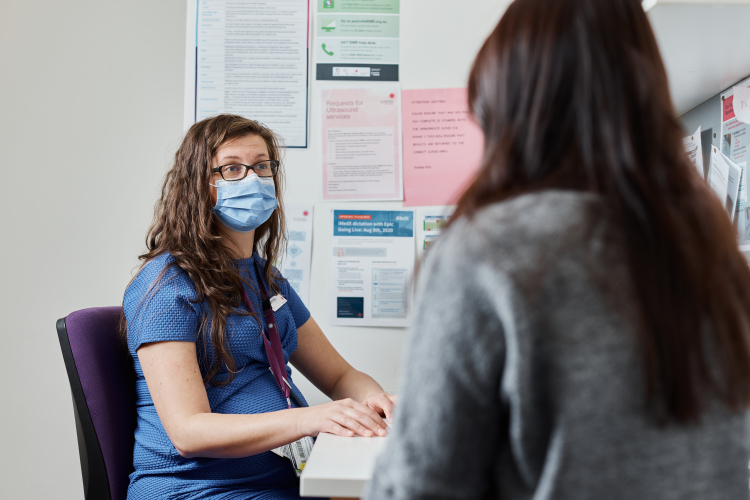
CEO of the Royal Women’s Hospital, Professor Sue Matthews has welcomed the release of the terms of reference for the National Women’s Health Advisory Council following the Council’s first meeting on 20 February.
Chaired by the Assistant Minister for Health and Aged Care, the Hon Ged Kearney MP, the meeting was attended by Professor Matthews and other representatives from peak stakeholder organisations, academia, consumer groups, and medical and professional bodies.
The Council was established to provide strategic advice and recommendations on how to improve the nation’s health system to provide better, more targeted and effective healthcare for Australian women to ensure improved health outcomes, reduce health complications post treatment and provide a more effective investment in the nation’s health.
Professor Matthews says gender bias can affect a person’s diagnoses, treatment and outcomes.
“There is clear evidence that a person’s sex and gender is a key determinant of health and wellbeing and there is significant bias in the health system that negatively impacts women and girls,” says Professor Matthews.
“For example, one in 10 women suffer from endometriosis, yet it takes, on average, seven to eight years to be diagnosed. Once a diagnosis is confirmed, treatment can be difficult to access and expensive,” she says.
“Thankfully, endometriosis is now in the research spotlight but decades of inaction and lack of investment in this debilitating and common condition means generations of women and girls have been left to endure unbearable pain and suffering – affecting their relationships, mental health and ability to participate in the workforce.”
The Council recently released its areas of focus, which include issues such as: the impacts of delayed diagnoses for women and girls; measures to improve health and wellbeing outcomes for marginalised groups; and the need to understand the lived experiences of women navigating the healthcare system.
“I am particularly pleased to see a focus on the affordability and accessibility of sexual and reproductive healthcare, and health issues across the life course including menstruation, contraception, medical and surgical terminations, fertility, pregnancy care, and menopause,” says Professor Matthews.
“The Women’s has been advocating to address health disadvantage in these areas for a very long time and we’d like to see significant progress on a national level through funding, policy and system reform.”

The National Women’s Health Advisory Council will provide advice and recommendations to improve women’s health outcomes and access to information, healthcare and services. Its remit includes issues such as:
- Differences between the sexes in treatment, health outcomes and Australian Government funding within the health system.
- Approaches to consideration of sex and gender in health and medical research and clinical trials. In particular, medical research for health conditions that impact women and girls, and opportunities to improve fit-for-purpose representation in research, clinical trials and investigational testing and distribution of research funding, with a focus on ensuring women have improved health outcomes where disparities exist.
- The evidence base for treatment, management and diagnosis of health conditions where outcomes are known to differ by sex and/or gender, and how sex and gender bias impacts health outcomes, such as delayed diagnoses for women and girls across a wide range of conditions and diseases, including but not limited to ADHD and autism, endometriosis and cardiovascular disease.
- Appropriate engagement and co-design with consumers to identify issues and support research, including taking into account the lived experiences of women navigating the healthcare system, including differences between the sexes with respect to treatment of pain and medical consent.
- Mechanisms for policy, practice and regulation to incorporate sex and gender sensitive approaches to support the safety, efficacy and quality of medical devices, diagnostic tools and clinical guidelines and treatments, including prescription of medication.
- Measures to improve health and wellbeing outcomes for women in priority populations, such as First Nations women; lesbian, bisexual, transgender, intersex and queer people; culturally and linguistically diverse people; lower socio-economic; regional and remote communities; and those with a lived experience of disability.
- Accessibility and affordability of sexual and reproductive healthcare, addressing health issues across the life course including menstruation, contraception, medical and surgical terminations, fertility and pregnancy care, and menopause.
- Opportunities to reduce clinician bias through health workforce training and education.
- Areas for improvement in health policies, guidelines and health promotion tools to improve health literacy of women and girls, particularly in areas where there is significant difference in disease presentation, progression or product utilisation by sex or gender.
- Advice on the development of a monitoring and reporting framework to guide National Women’s Health Strategy 2020-2030 implementation and collection of data against this framework to assess and evaluate implementation progress.
- The Council’s work will complement existing Commonwealth initiatives that aim to address sex and gender bias in the health system, including through the National Health and Medical Research Council and the Therapeutic Goods Administration’s Women’s Health Products Working Group. The Council may also consider whether there is scope to leverage existing state and territory initiatives towards a national approach.
For more information, see the National Women’s Health Advisory Council webpage.